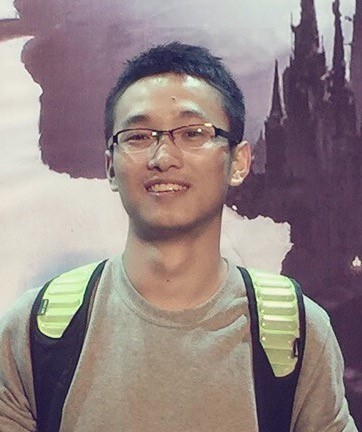Carnegie Mellon University
Expressive Real-time Intersection Scheduling: New Methods for Adaptive Traffic Signal Control
Abstract: Traffic congestion is a widespread problem throughout global metropolitan areas. In this thesis, we consider methods to optimize the performance of traffic signals to reduce congestion. We begin by presenting Expressive Real-time Intersection Scheduling (ERIS), a schedule-driven intersection control strategy that runs independently on each intersection in a traffic network. For each intersection, ERIS [...]
Verification and Accreditation of Artificial Intelligence
Abstract: This work involves formally verifying a trained model's adherence to important design specifications for the purpose of model accreditation. Accreditation of a trained model requires enumeration of the explicit operational conditions under which the model is certified to meet all necessary specifications. By verifying model adherence to specifications set by developers, we increase the [...]
Carnegie Mellon University
Direct-drive Hands: Making Robot Hands Transparent and Reactive to Contacts
Abstract: Industrial manipulators and end-effectors are a vital driver of the automation revolution. These robot hands, designed to reject disturbances with stiffness and strength, are inferior to their human counterparts. Human hands are dexterous and nimble effectors capable of a variety of interactions with the environment. Through this thesis we wish to answer a question: [...]
Towards Discriminative and Domain-Invariant Feature Learning
Abstract: Deep neural networks have achieved great success in various visual applications, when trained with large amounts of labeled in-domain data. However, the networks usually suffer from a heavy performance drop on the data whose distribution is quite different from the training one. Domain adaptation methods aim to deal with such performance gap caused by [...]
Learning Efficient Visual Representation on Model, Data, Label and Beyond
Abstract: Efficient deep learning is a broad concept that we aim to learn compressed deep models and develop training algorithms to improve the efficiency of model representations, data and label utilization, etc. In recent years, deep neural networks have been recognized as one of the most effective techniques for many learning tasks, also, in the [...]
Self-supervised Learning and Generalization
Abstract: Contrastive self-supervised learning is a highly effective way of learning representations that are useful for, i.e. generalise, to a wide range of downstream vision tasks and datasets. In the first part of the talk, I will present MoCHi, our recently published contrastive self-supervised learning approach (NeurIPS 2020) that is able to learn transferable representations [...]
Carnegie Mellon University
Teleoperation via Intuition: Safe and Intent Oriented Navigation
Abstract: This thesis aims to enable seamless teleoperation of a mobile robot by a human operator, such that the robot navigates in unstructured environments following the operator’s intent intuitively, safely, and efficiently. The roles of the human and robot are disproportionate in traditional teleoperation: The human is responsible for most of the autonomy of the [...]
Enabling Robots to Cooperate & Compete: Distributed Optimization & Game Theoretic Methods for Multiple Interacting Robots
Abstract: For robots to effectively operate in our world, they must master the skills of dynamic interaction. Autonomous cars must safely negotiate their trajectories with other vehicles and pedestrians as they drive to their destinations. UAVs must avoid collisions with other aircraft, as well as dynamic obstacles on the ground. Disaster response robots must coordinate [...]
Learning to see from few labels
Abstract: Computer vision systems today exhibit a rich and accurate understanding of the visual world, but increasingly rely on learning on large labeled datasets to do so. This reliance on large labeled datasets is a problem especially when one considers difficult perception tasks, or novel domains where annotations might require effort or expertise. We thus [...]
Carnegie Mellon University
Towards the Automated Design of Neural Networks
Abstract: Neural architecture search (NAS) is recently proposed to automate the process of designing network architectures. Instead of manually designing network architectures, NAS automatically finds the optimal architecture in a data-driven way. Despite its impressive progress, NAS is still far from being widely adopted as a common paradigm for architecture design in practice. This thesis [...]









